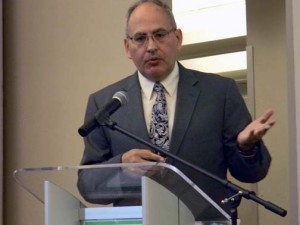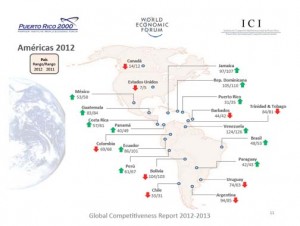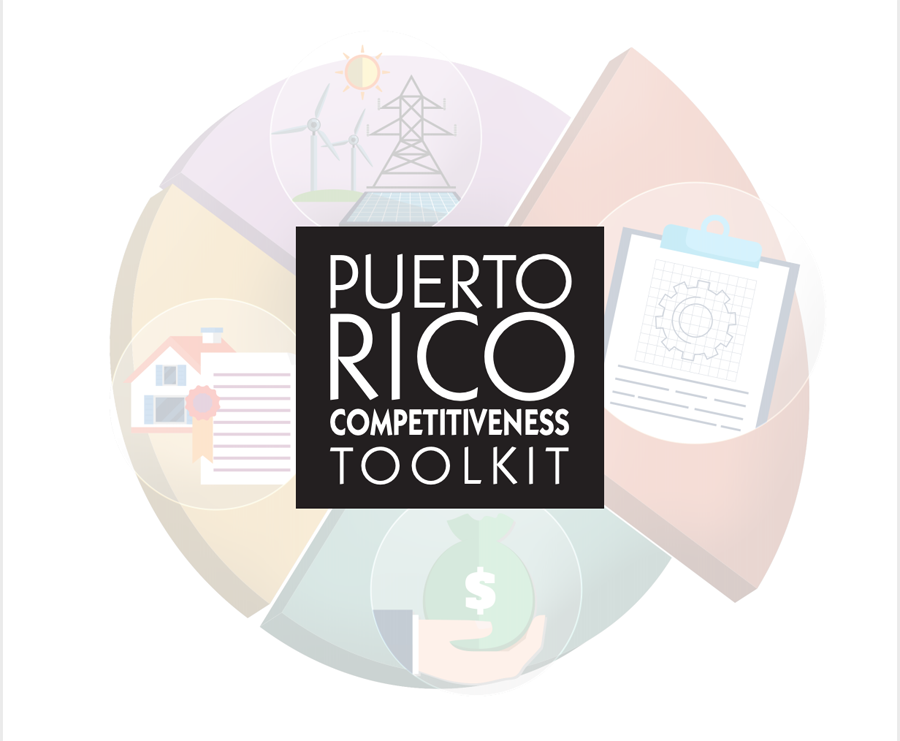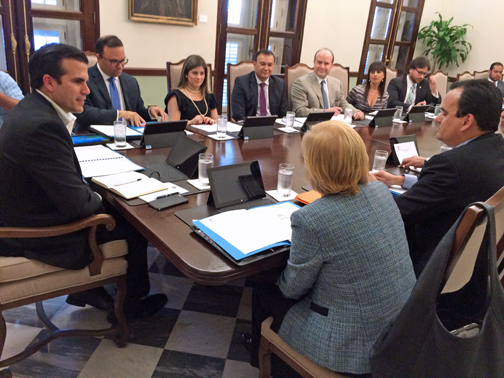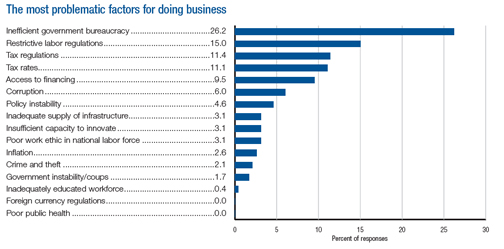P.R. climbs 4 notches on WEF index, but competitive roadblocks remain
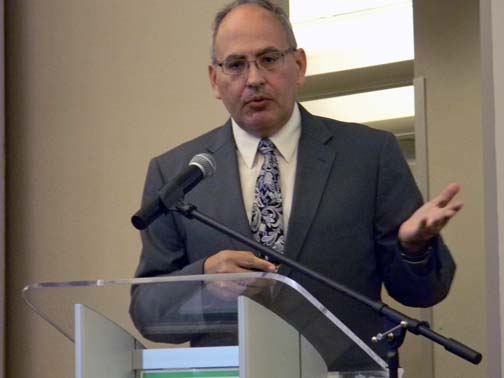
Puerto Rico secured a place among the world’s top-third most viable economies this year, locking into the 31st position — up four notches from last year’s 35th ranking — in the World Economic Forum’s Global competitiveness index released Wednesday.
However, that does not mean the island should get comfortable yet, as it still faces several significant challenges that it must overcome to become a true economy to be reckoned with, private-sector representatives said during a news conference called to discuss the results of the influential index.
“The island remains within a group of countries reporting mid-range indexes, which constitutes a major challenge for Puerto Rico to become internationalized and break the competitive barrier that it needs to overcome to position itself among top-ranked countries,” said Francisco Montalvo, coordinator for the WEF in Puerto Rico. “Our goal should be to work to close the socioeconomic gap while we establish the Puerto Rico brand abroad.”
Puerto Rico has several factors on its side: availability of scientists and engineers, the use of sophisticated marketing techniques, a level sophistication in production processes, quality of local suppliers and absorption and use of technology in business. Puerto Rico is also favored in comparison to the other 143 countries participating in the WEF index are high college enrollment levels, a legal framework to protect intellectual property and aviation infrastructure.
“Puerto Rico has a sophisticated private sector and very active nonprofit sector,” said Iván Puig, president of Puerto Rico 2000, a WEF partner institute. “It’s good to see both sectors working more closely every day, joining efforts and coordinating economic development strategies at islandwide and community levels to improve Puerto Rico’s competitiveness globally.”
For this year’s ranking, a total of 71 local companies — out of a potential 300 reached electronically — participated in the local survey, Montalvo said. Although the number seems low, he noted it is comparable to participation in other ranked countries.
Although local executives surveyed expressed a slight optimism in their economic outlook for the year ahead, and factors such as careless public spending and burdensome government bureaucracy reflected improvements, indicators such as the costs associated with the island’s high crime rate and lack of government transparency negatively impact Puerto Rico’s competitive position.
“Crime affects us personally and companies as well. There’s a cost associated with security which affects us negatively,” Montalvo said.
Other macroeconomic factors that represent competitive challenges are: the quality of the island’s power grid, favoritism in government decisions, the quality of education in Science and Mathematics, and the burgeoning level of public debt.
Five years of stability
“Although in nominal terms, Puerto Rico moves up four places in the WEF’s Global Competitiveness Index, the island reflects a stable pattern when compared to more than 130 countries during the past five years,” said Beñat Bilbao-Osorio, the WEF’s associate director and chief economist in charge of Latin America and the Caribbean.
Puerto Rico 2000’s data confirms the stable trend over the past five years, which Montalvo said is positive considering the global economic turmoil and problems, but negative because “we haven’t been able to break through that ceiling.”
“We’ve been able to improve in innovation, which has kept us competitively afloat and we generate a mass of extraordinary scientists and engineers, but have a terrible brain-drain issue: we educate them and they leave,” he said.
Puerto Rico has before it the challenge of expanding the scope of its market by exporting and going international, “because if we don’t do something about it, we can become irrelevant.”
Meanwhile, Francisco Rodríguez-Castro, president of the Private Sector Coalition, said another issue that has been mentioned year after year is Puerto Rico’s need to restore its labor force and culture.
“We’ve been raising a flag on this for five years, because it’s a problem that continues to be pointed out,” he said. “Right now, this is not about celebrating our 31 ranking, which is good, but rather about figuring out what we need to do to grow even more.”
While Puerto Rico heads the Latin American and Caribbean region in terms of competitiveness, Chile (33) and several countries in this region are improving their competitiveness including Panama, which climbed nine places to the 40th position, Brazil (53), Mexico (58) and Peru (61).
The United States, meanwhile, continued to decline for the fourth consecutive year, falling two places to the 7th position.


